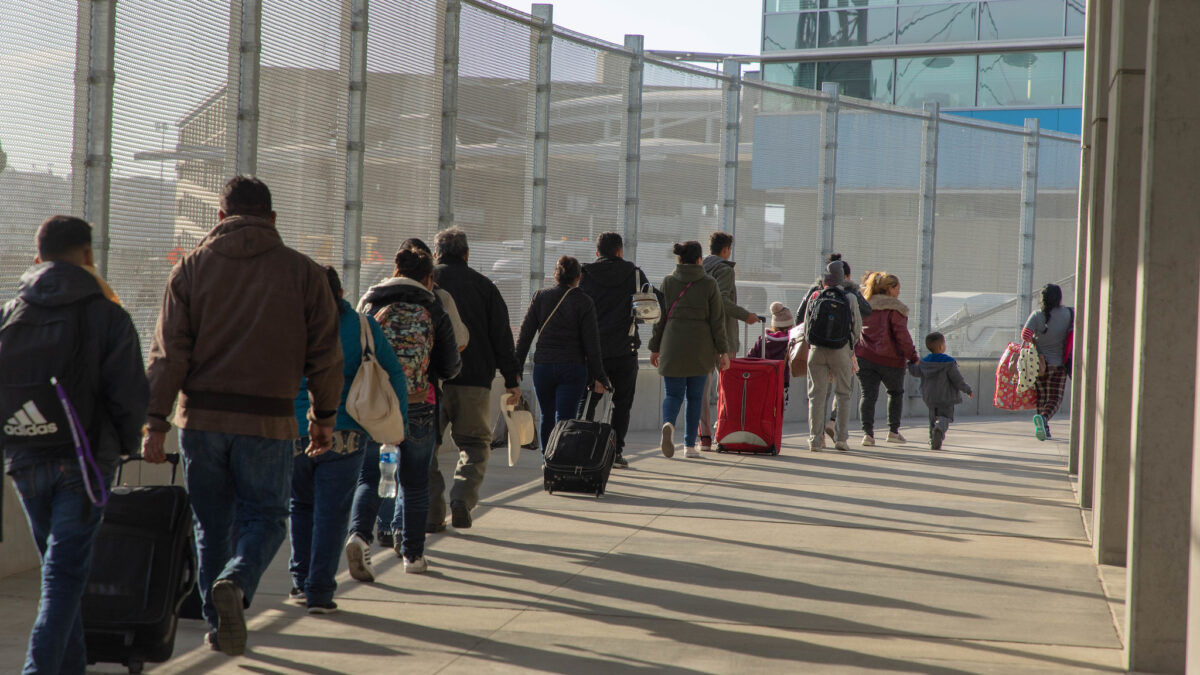So much for a border crisis. The Biden administration recently finalized regulations that will provide taxpayer-funded benefits to individuals who came into this country lacking authorization, by defining them as “lawfully present.”
The final rule follows regulations proposed last spring. It will have the same major effects as the initial proposal by expanding access to taxpayer health benefits for specified populations, but seems craftily drafted in a way to avoid, or at least minimize, legal challenges.
Medicaid Expansion Not Finalized
The prime controversy in both last year’s proposed rule and this year’s final version is over health coverage for individuals participating in the Deferred Action for Childhood Arrivals (DACA) program. Both regulations would revise the definition of “lawfully present” to include DACA participants for purposes of participation in health programs under Obamacare.
One major difference lies in the applicability of the regulatory changes. Whereas last year’s proposed rule changed the definition of “lawfully present” for both the insurance exchanges and Medicaid, the final regulation only applied the change to the exchanges, at least for the moment.
As a practical matter, not finalizing the Medicaid change will have little impact on DACA participants. Unlike most other populations, DACA participants will not need to earn income equal to the poverty level ($15,060 for a single person in 2024) to qualify for exchange subsidies. And because Biden-era enhanced subsidies remain in effect next year, the lowest-income recipients can qualify for subsidies that require no out-of-pocket premium for a benchmark health plan.
Fear of Legal Challenge
In the final rule, the administration stated, “We are not finalizing a ‘lawfully present’ definition for Medicaid … at this time. Rather, we are taking more time to evaluate and carefully consider the comments regarding our proposal with respect to Medicaid…[and] to continue evaluating the potential impact of our proposed definition of ‘lawfully present’ on state Medicaid” agencies.
The administration claims state agencies have too many other obligations associated with the Medicaid “unwinding” — that is, removing ineligible individuals from the Medicaid rolls for the first time since early 2020 lockdowns. But that explanation seems like a pretext, given that most states will complete their “unwinding” before the “lawfully present” rule takes effect on Nov. 1, 2024.
The more accurate explanation for the change lies in last year’s admission in the proposed rule that changing the definition of “lawfully present” in Medicaid “may impose substantial direct costs on state governments.” I noted last spring that this language “gives states clear standing to sue” over this unfunded mandate for states to pay for the increased costs associated with covering DACA participants.
By making DACA participants eligible for exchange subsidies (fully paid for by the federal government) instead of Medicaid (paid for by the states and Washington), the Biden administration is trying to avoid giving states standing to mount a legal challenge. In fact, the administration stated elsewhere in the regulation that the change “does not require states to fund additional outreach and enrollment activities as a result of this rule.” Apparently, the administration wants to avoid imposing any new costs on states — in Medicaid, on the exchanges, or otherwise — because if courts grant a state standing to challenge part of the rule, it could create an opening to strike the entire rule down.
Billions in New Spending
Apart from the clever way the administration has attempted to avoid legal challenges, the entire premise of the rule seems rather Orwellian. The idea that a president can unilaterally declare a group of individuals “lawfully” present without the consent of Congress defies logic, not to mention the basic principles of “our democracy” that the left purports to care so much about.
Consider this sentence: “Some commenters noted opposition to this rule on the basis that they believe DACA recipients entered the United States unlawfully, that they believe DACA recipients are undocumented, or that they believe DACA recipients have broken the law.” None of those are beliefs, they are facts.
To qualify for DACA, one by definition had to have entered the United States unlawfully and without documentation. What someone wants to do about migrants who entered the country as young children is an entirely separate question, but attempting to deny the basic facts of their circumstances is gaslighting.
The administration estimates this change will increase federal spending by $1.15 billion between now and 2028. Even this estimate could prove low, as the official analysis assumes that exactly none of the nearly three-quarters (73 percent) of DACA recipients who currently have coverage will drop that coverage to obtain government benefits.
In 1993, Hillary Clinton testified before Congress that “we certainly don’t want [illegal aliens] having the same benefits that American citizens are entitled to have” because “we know now that too many people come in [to the United States for medical care, as it is.” The fact that Clinton’s comments represent a lone voice of sanity in the Democratic Party speaks to its leftward radicalization over the past three decades.









